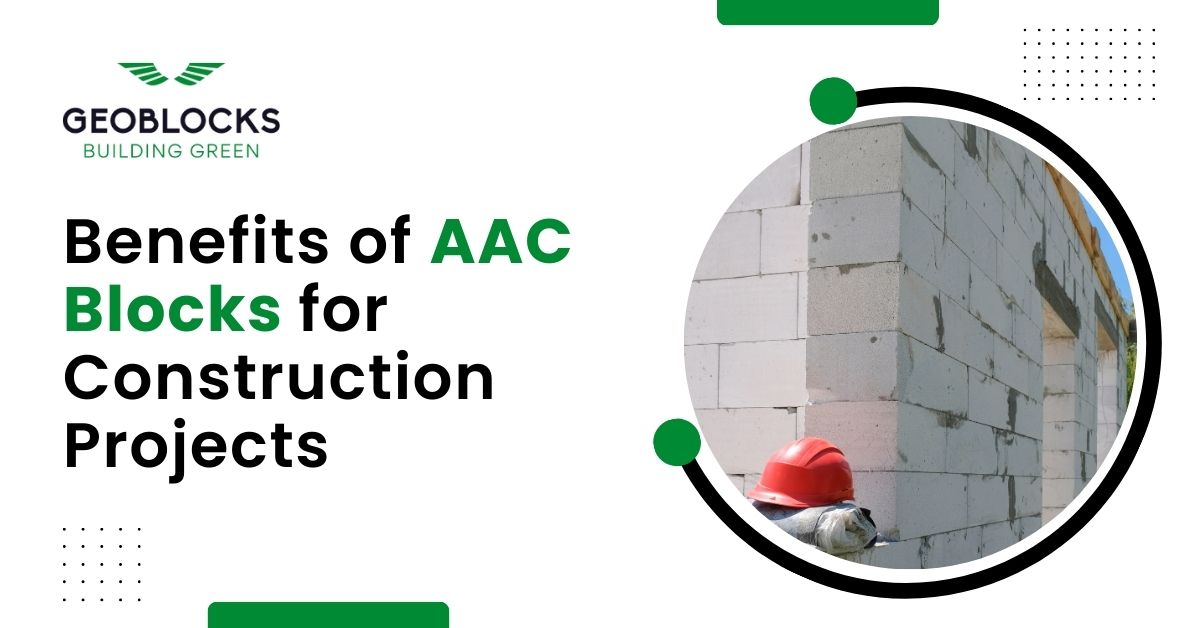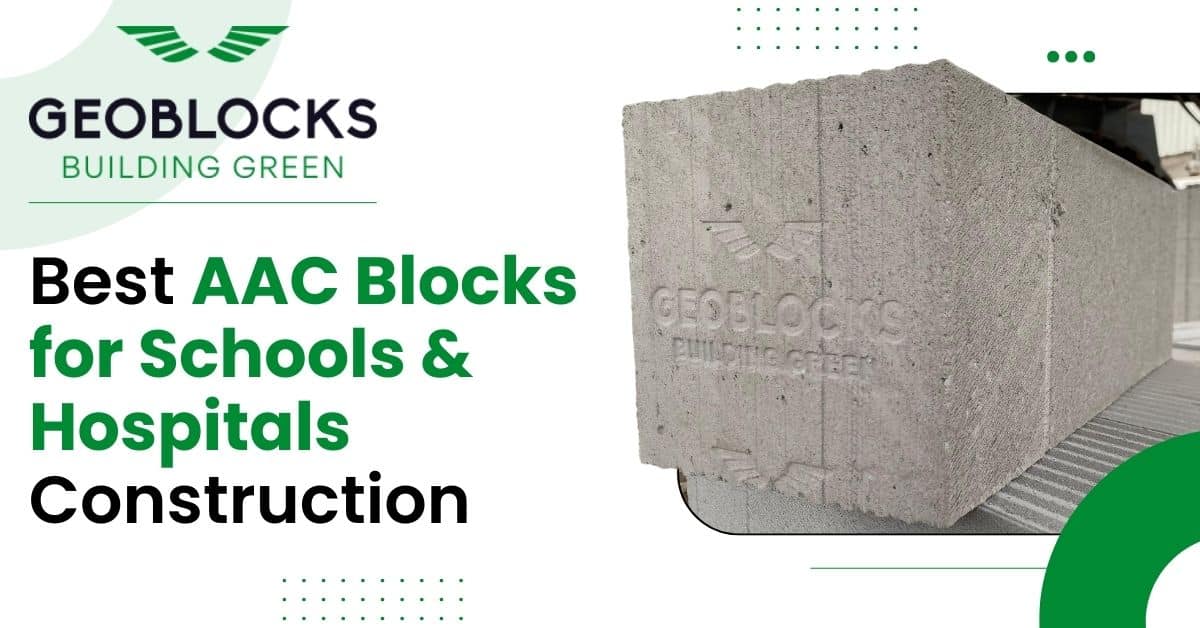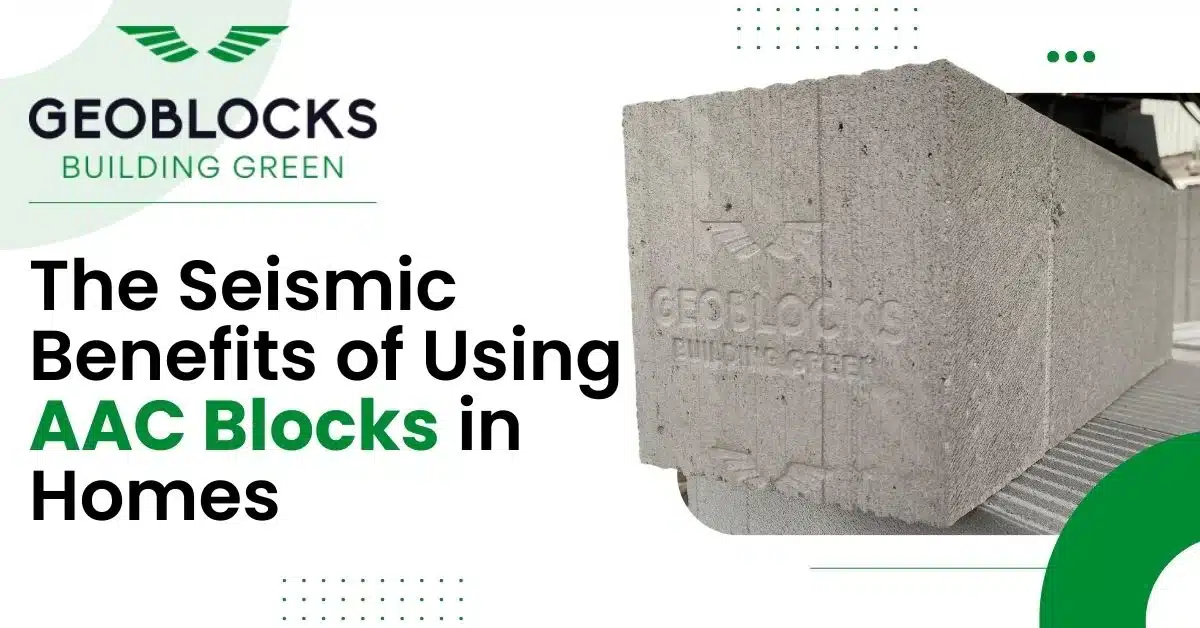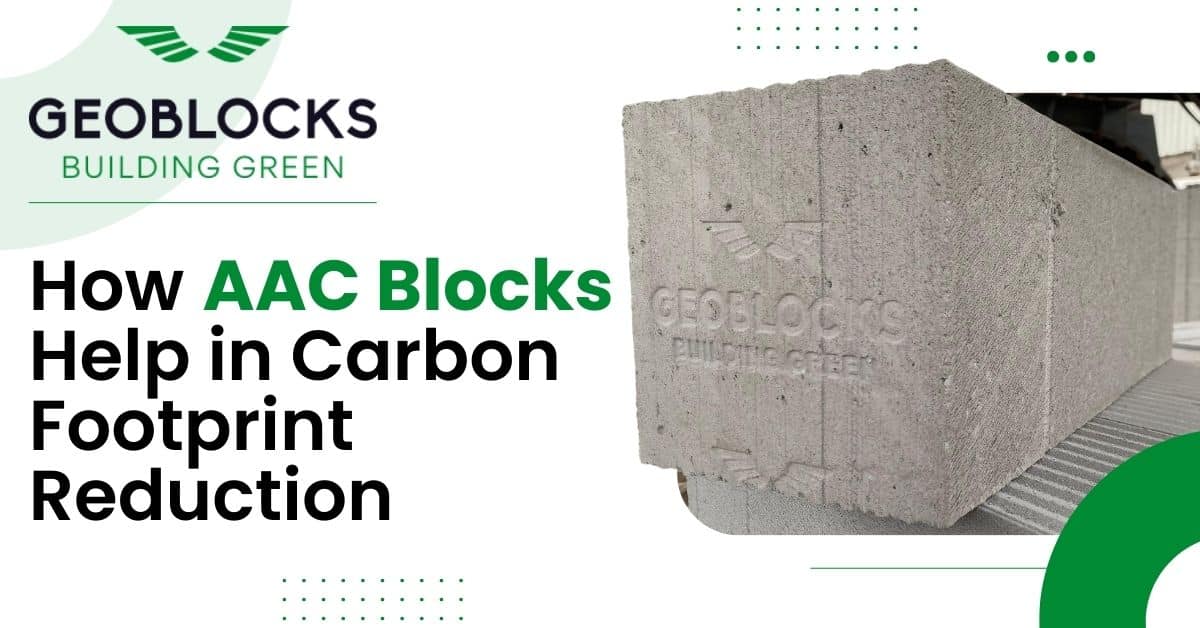When constructing schools and hospitals, choosing the right building materials is crucial for safety, durability,…

In the construction industry, the choice of building materials plays a crucial role in determining a project’s quality, durability, and sustainability. Autoclaved Aerated Concrete (AAC) Blocks have emerged as a preferred choice for modern construction due to their numerous benefits. This blog explores the advantages of AAC blocks and their impact on construction projects.
What are AAC Blocks?
AAC (Autoclaved Aerated Concrete) Blocks are lightweight, precast foam concrete building materials suitable for producing concrete masonry units like blocks. Made from a mixture of Sand (or Fly Ash), Cement, Lime, Gypsum, Water, and an Expanding Agent like Aluminum Powder, AAC blocks are cured under high-pressure steam, which gives them unique properties. These blocks are highly appreciated in the construction industry for their Energy Efficiency, Sustainability, and Ease of Use.
Benefits of AAC Blocks in Construction
Lightweight
One of the primary AAC Blocks Benefits is their Lightweight Nature. Due to their porous structure, AAC Blocks have a significantly Lower Density than Traditional Bricks, making them easier to handle and transport. This reduction in weight translates to lower structural loads, leading to cost savings in structural supports and foundations.
Excellent Insulation Properties
AAC Blocks provide Excellent Thermal Insulation, which is a significant advantage in energy-efficient construction. The air pockets within the blocks act as insulators, reducing the need for additional thermal insulation. This property helps maintain a comfortable indoor temperature, resulting in lower heating and cooling costs.
High Compressive Strength
Despite being lightweight, AAC Blocks boast impressive Compressive Strength. Their unique manufacturing process ensures that these blocks are Robust and Durable, making them suitable for both Load Bearing and Non-Load Bearing Applications. This strength contributes to the overall Stability and Longevity of the structures built with AAC Blocks.
Fire Resistance
AAC Blocks offer Excellent Fire Resistance, a crucial factor in ensuring the safety of buildings. The high thermal resistance of AAC Blocks means they can withstand extreme temperatures without significant damage. Structures built with AAC Blocks can endure fire exposure for several hours, providing additional time for evacuation and reducing potential damage.
Sound Insulation
Another notable advantage of AAC Blocks is their Superior Sound Insulation Properties. The porous structure of the blocks helps in reducing noise transmission, making them ideal for residential and commercial buildings in noisy environments. This characteristic enhances the comfort and privacy of occupants.
Eco-Friendly
AAC Blocks are considered an Environmentally Friendly Building Material. They are made from non-toxic ingredients and produce less waste during construction. The energy-efficient manufacturing process, combined with the blocks’ insulation properties, contributes to a reduced carbon footprint. Builders and developers using AAC Blocks can achieve green building certifications more easily.
Precision and Ease of Use
AAC Blocks are manufactured with High Precision, ensuring uniformity in Size and Shape. This accuracy simplifies the Construction Process, as the blocks fit together seamlessly, reducing the need for excessive mortar. The ease of handling and installation speeds up the construction process, resulting in time and labor savings.
Frequently Asked Questions
What is the Typical AAC Block Density?
AAC Block density typically ranges between 500-700 kg/m³, making them significantly lighter than traditional concrete blocks.
How Does the Compressive Strength of AAC Blocks Compare to Traditional Bricks?
AAC Blocks have a compressive strength of 3-5 N/mm² comparable to traditional clay bricks, providing adequate strength for various construction needs.
Are AAC Blocks Suitable for Load Bearing Walls?
Yes, due to their high compressive strength, AAC Blocks are suitable for both load-bearing and non-load-bearing walls.
What makes AAC Blocks Fire-Resistant?
The high thermal resistance of AAC Blocks, due to their composition and manufacturing process, makes them highly fire-resistant, withstanding temperatures of up to 1,200°C.
Can AAC Blocks be used in Seismic Zones?
Yes, AAC Blocks’ lightweight and high strength make them suitable for use in seismic zones, contributing to the overall earthquake resistance of structures.
Conclusion
AAC Blocks offer Numerous Advantages for Construction Projects, including Lightweight, Excellent Insulation, High Compressive Strength, Fire Resistance, and Sound Insulation. Their Eco-Friendly Nature and Ease of Use make them a Preferred Choice for Modern Construction. For High-quality AAC Blocks that meet the Highest Standards, Trust Reputable Manufacturers like Geoblocks. Embracing AAC Blocks in your construction projects ensures durability, efficiency, and sustainability, aligning with the future of building technology. Contact Geoblocks Today for AAC Blocks Requirements for your Future Projects.




